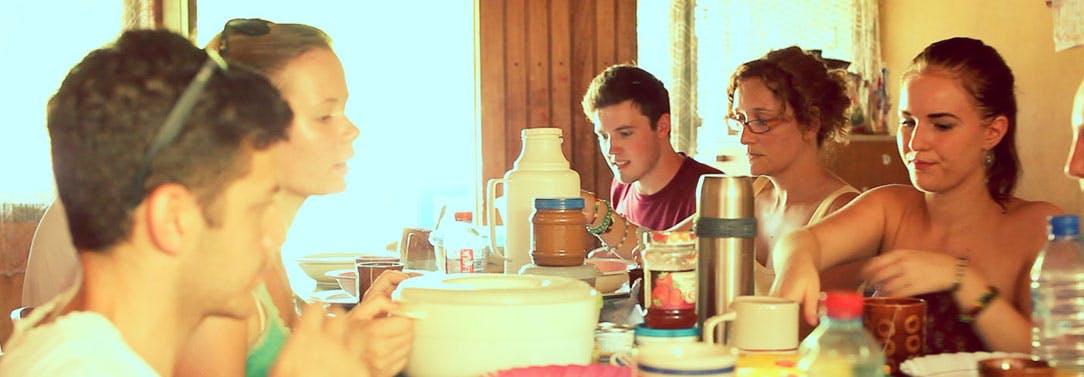1. Understand the risks
Before you can act safely, it’s important to understand what the risks are. Even if you have traveled extensively, we’ll always recommend researching extensively the destination you are planning to travel to. The risks in Madagascar are very different to those of Argentina, and being in the know is the most important first step that all volunteers can take to keep themselves safe.
2. Follow the advice of the local team at all times
Our local teams are carefully selected and we trust them to provide IVHQ volunteers with the best support and advice. They know their communities well and they have the processes in place to help keep volunteers safe. Follow their advice and guidance at all times – it has been developed for a reason. This advice may include suggestions about areas to avoid, smart rules about not traveling alone, and guidance about how to enjoy your ‘free time’ safely.
3. Always act with respect
Different cultures have values and ways of doing things that may vary from what you are used to, and experiencing a new culture is one of the best parts of volunteering abroad. However not respecting local customs can create risks and put you in harm’s way unnecessarily. Be sure you understand how to dress, behave, and communicate in a way that shows respect for the culture you’re volunteering in. This is especially important in relation to how you interact with children and it’s important that you respect the rights and protection of children at all times. More information about this and details about IVHQ’s Code of Conduct for volunteers is provided in our Child Protection Policy.
4. Make digital copies of everything important
Having a digital copy of all your important documents is a key part of keeping safe. If an incident occurs and you lose your passport, or have your bag stolen along with your travel insurance documents, being able to access a digital copy will help you to get the support you need quickly. For example, in the unlikely event that a you need to visit a hospital or private clinic, you will need to produce a copy of your travel insurance before any treatment is provided or risk having to pay for the treatment yourself and this can be costly. Making copies of key documents such as your passport, travel insurance policy, itinerary and vaccinations record doesn’t prevent incidents from occurring, but it does help to ensure you get the support you need as quickly as possible when something does go wrong.
5. Behave responsibly
It’s also important to act responsibly at all times. This is involves thinking carefully about how you behave and making smart decisions so you can avoid situations that expose you or your fellow volunteers to risk unnecessarily. For example, be careful not to appear as if you are carrying a lot of cash or items of significant value when you’re out and about. And always keep your wits about you when out socialising, especially if alcohol is involved. Our Responsible Volunteer Travel Policy provides additional guidance.
6. Take our pre-departure training
After registering on an IVHQ program, you will gain exclusive access to our pre-departure training. The training is delivered through three online learning modules which can be accessed via your. These training modules provide IVHQ volunteers with the knowledge they need to make smart decisions while abroad. Our training has a particular focus on risk areas that are not in the direct control of IVHQ or our local teams, and provides guidance around how volunteers can mitigate such risks. For example, the training explores risks related to activities that volunteers commonly undertake during ‘free time’ and outside of the typical volunteer program hours, such transport to tourist attractions, trying local food or beverages and drinking alcohol. The training also provides guidance around wearing culturally-appropriate clothing, displaying culturally-sensitive behaviour, and steps that volunteers should take in the event of an emergency or serious incident.
